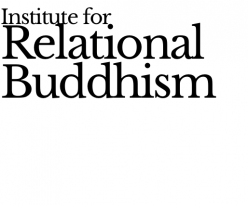Relational Buddhism’s centerpiece of change is Karma Transformation which is the basic working mechanism in Buddhist Psychotherapy on emotional disorders and Buddhist Coaching/Counselling on lifestyle and career. Karma is considered to be embodied intentional (inter)action in Dependent Origination with reason, emotion, and motivation operating in conjunction. By being born within relationship and by preceding the bounded self, karma stands before all. To be sure, Relational Buddhism views karmic wholesome intentional activity not lurking behind human eyeballs but as a pivotal alternative of intra- and inter-personal change worked out in-between-selves.
Karma Transformation starts with an unwanted emotional state and works at deconstructing unwholesome/akusala perception, cognition and behavior with regard to an external or internal activating event. It subsequently chooses to construct wholesome/kusala perception, cognition and behavior to eventually alter affect. Thus, the karma of drama, distress and agony is transformed into the karma of contentment. This can be illustrated by real life demonstrations and case examples detailing the creation of wholesome karma as “purified” perceptions, “rational” cognitions and “functional” behaviors of interaction.
Buddhist Psychotherapy
Insiders have observed that karmic sequences run parallel to the nucleus of change employed in Cognitive-Behavior Therapy (CBT), an evidence-based school of psychotherapy, which implies that the two change methodologies overlap considerably. Indeed, one of the founding fathers of CBT, the legendary Albert Ellis, noted that these disciplines bear more commonalities than differences, particularly by abolishing “most of the human ego” (Kwee & Ellis, 1997, 1998). Psychotherapy, also if Buddhist, operates in the realm of the “provisional self”; hence therapy logistically precedes meditation towards “ultimate no-self”. At bottom: only when calmed down, out of emotional quagmires and free from horror vacuum, is one ready to shift toward emptiness and Buddhahood.
Buddhist Coaching
Relational Buddhism and Karma Transformation propagate Coaching/Counselling which invites the co-construction of inter-being-in-between-selves and of a “non-foundational/empty morality of collaborative action” based on loving-kindness, empathic compassion and shared joy to render team spirit for societies, communities, companies and groups with congenial bonds as lifeline. Buddhist Coaching/Counselling is centred around the building of “team spirit” through conversational skills and uses the same method as in Buddhist Psychotherapy bearing in mind that the customers are not patients asking for psychological help to unwind emotional knots but clients who want to grow and flourish from their present status. Typical themes of the tailor-made coaching/counselling are: lifestyle, life course, life cycle, life juncture, career stagnation, leadership insecurity, managing style, conflict resolution… … …
Kwee, M.G.T., & Ellis, A. (1997). Can Multimodal and Rational Emotive Behavior Therapy Be Reconciled? Journal of Rational-Emotive & Cognitive-Behavior Therapy, 15, 95-133.
Kwee, M.G.T., & Ellis, A. (1998). The interface between Rational Emotive Behavior Therapy (REBT) and Zen. Journal of Rational-Emotive & Cognitive-Behavior Therapy, 16, 5-44.
Need extra help? Better Help provides such help. Find an online psychiatrist here: https://www.betterhelp.com/advice/psychologists/reasons-to-choose-an-online-psychiatrist/

